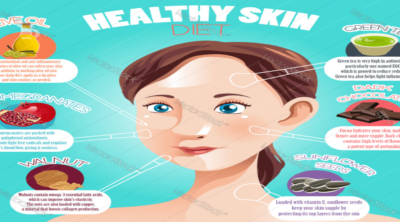
Vitamin A based sunscreens are used by many who expect a healthier skin when using this product. However, a recent study reveals a ‘hair raising’ fact related to usage of such sunscreens.
When traveling in the hot sun, we are often advised to apply a sunscreen on the facial area. These are topical products that protect the skin from the dangers of exposure to sunlight. Of the many ingredients, vitamin A is also an important part of this topical product, and manufactures claim that this addition of vitamin A can benefit the skin in the long run. However, recent studies conducted by FDA contradicts these claims.
Vitamin A in Sunscreens
Vitamin A added in these skin care products is in the form of retinyl palmitate. According to latest research, 30 to 40% of sunscreen lotions contain retinyl palmitate. It is a vitamin A compound and its inclusion is supposed to provide anti-aging benefits on the skin. However, this compound could actually predispose the person to skin tumors. This conclusion is largely based on animal studies in which mice were applied lotion that contained approximately 0.5% of retinyl palmitate. Another group of mice were treated with cream that was devoid of retinyl palmitate. The outcome of the study that was observed after a year is a cause for great concern. Approximately 20% of mice that were exposed to retinyl palmitate creams started showing symptoms of skin tumors. This study clearly hints the serious side effects of using such type of topical products.
An important point to note here is that the outcome documented from the research is limited to animals only. Also, the product was applied in large amounts during the study, which might be responsible for skin cancer development in mice. However, the study does point out that the same effect may be seen in humans. So, serious thought has to be given whether use of topical product containing vitamin A will be a good option, health wise.
Another study revealed that although vitamin A is good for the skin, it behaves differently when it comes in contact with sunlight. According to research, metabolism of vitamin A takes place when it is exposed to sunlight. Unfortunately vitamin A metabolizes into free radicals, substances that cause cellular damage and trigger the onset of age related disorders. So, applying a sunscreen containing retinyl palmitate and then moving in the hot sun may lead to formation of free radicals on the superficial skin. This study points out yet another disadvantage of using such type of skin care products. Vitamin A breaking into free radicals on sun exposed skin is definitely unacceptable, thereby putting a question mark on the benefits of applying such topical products.
Better Alternatives
Keep in mind that applying a sunscreen during summer days is important to shield the skin against the harmful UV rays of the sun. To be on the safer side, why not use topical products that do not contain vitamin A. Topical products that have constituents like titanium oxide or zinc oxide are a better alternative to those containing vitamin A. Just make sure to read the ingredients that are printed on the label. Around 60% of sunscreens available in the United States do not have vitamin A and so buying such a cosmetic product not only helps to block UV rays but will ensure a youthful skin as well.
It is important to note that people with skin conditions like acne and eczema are advised not to use these skin care products. This is because it is likely to cause skin irritation and aggravate the discomfort. Also, the cracked skin in eczema will allow the ingredients of this topical product to penetrate deep within the skin, which can be harmful. So, it is better to talk to a dermatologist before using any cosmetic product for skin problems.
Though in the summer time it is advisable to use these products in your skin care regimen, vitamin A free sunscreens are the ones you have to hunt for. The ill effects of products with vitamin A have not been proven on humans as yet, but it is better to take no risks when it comes to health.
Disclaimer: The information provided in this article is solely for educating the reader. It is not intended to be a substitute for the advice of a medical expert.


